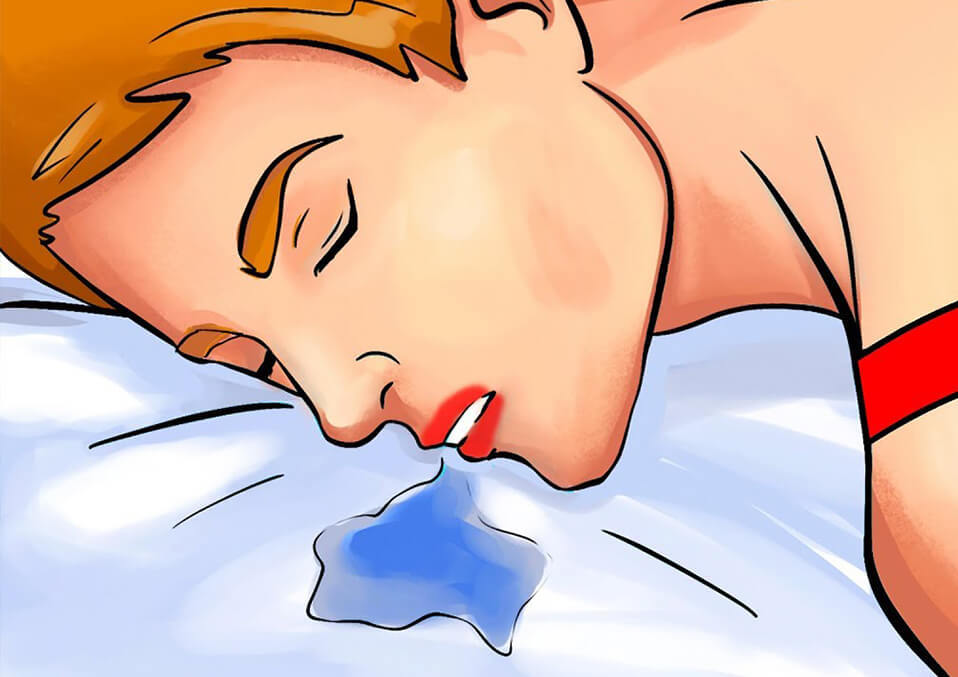Ptyalism refers to the excess building up of saliva in early pregnancy. Common symptoms of pregnancy like tender breasts, missed period, morning sickness, feeling tired are seen during pregnancy. But some pregnant women also have other not-so-common symptoms like excess saliva build-up in the mouth. Excess saliva in the mouth during pregnancy is a rare symptom of early pregnancy seen along with morning sickness.
What is Ptyalism?
Excess building up of saliva in early pregnancy is medically termed as ptyalism. It is perfectly normal to have excess saliva during pregnancy. The salivary glands producing saliva tend to generate approximately 400ml to 1l of saliva in an entire day which remains unnoticed since it is constantly swallowed throughout the day. However, during pregnancy, if a woman has excess saliva in the mouth, it may be because of increased saliva production or decreased swallowing tendency or a combination of both.
Few pregnant women may salivate intensely when nauseous. The saliva in such cases can make feel like spitting it out.
When Is Excess Saliva Produced During Pregnancy?
In some women, excess production of saliva could be an early pregnancy symptom. Therefore, excess production of saliva starts around the second or third week of pregnancy and settles down around the end of the first trimester. In some women, this condition continues throughout the pregnancy and up until the delivery. Researchers believe that excess saliva production is the body’s way of protecting the mouth, throat, and teeth from the corrosive effects of stomach acid.
What Causes Ptyalism In Pregnancy?
Some of the causes of ptyalism in pregnancy are as follows –
- It can be because of pregnancy hormones. Hormonal changes during pregnancy can cause an increase in saliva production.
- The usual tendencies of morning sickness and nausea may prevent women from swallowing the saliva as the taste might make it unpleasant and even more nauseous and leading to saliva build-up in the mouth.
- Producing excess saliva during pregnancy can be because of heartburn which is a common problem in pregnancy. As the uterus expands to accommodate the baby it pushes the stomach. Which causes the stomach to push up its contents in the esophagus leading to a bad irritating burning sensation. As a bodily reflex, the esophagus causes the glands to produce more saliva in order to soothe the acid of the stomach and burning sensation.
- If the pregnant woman suffers from any oral sensations like tooth decay, cavities, dental caries or so, there is a chance of salivation increasing in such cases and being excessive.
- Being exposed to some toxic chemicals may cause the body to react in a manner of producing more saliva than usual.
- Specific medications like anticonvulsants, lithium, tranquilizers, and so on are known to react with the salivary glands causing to produce excessive saliva.
Treatment
The problem of excessive saliva in the mouth is not serious and not to worry. Also, there is no known cure for the same. But there are certain things that can be done to lessen the production of saliva in the mouth.
- Try making some dietary changes like removing carbohydrate-rich or starch-based foods from the diet.
- Contact the doctor and check for any infections that might be present in the mouth. Certain gum-related problems can result in excessive production of saliva.
- Re-plan the meal times by having smaller meals at frequent intervals.
- Brush teeth often and use a mouthwash. Using a mouthwash intermittently throughout the day can help with the saliva.
- Have plenty of water to keep the mouth wet. Keep a bottle handy ad take small sips frequently. Not only will it keep the saliva in check but also keep hydrated.
- Have chew sugarless gums or mints to help with the swallowing of saliva.
- Take an ice cube and suck on it for some time. The mouth will feel numb and will produce less saliva for some time.
- Try chewing ginger to reduce salivation. Consult the doctor for the same.
- Add a lot of crunchy and fibrous fruits and vegetables to the diet.
- If swallowing the saliva starts making nauseous then spit it out.
- When eating biscuits, have dry and plain ones that help soak the saliva.
- If this escalated to severe vomiting, visit the doctor immediately to get medications for it.
Conclusion
Salivating excessively during pregnancy can seem a bit embarrassing but need not worry as it is a sign of pregnancy. It is a natural response to the changes in the body and drooling or excessive saliva is nothing other than a minor annoyance. Contact the doctor if anything bothers you during pregnancy.
Sources:
